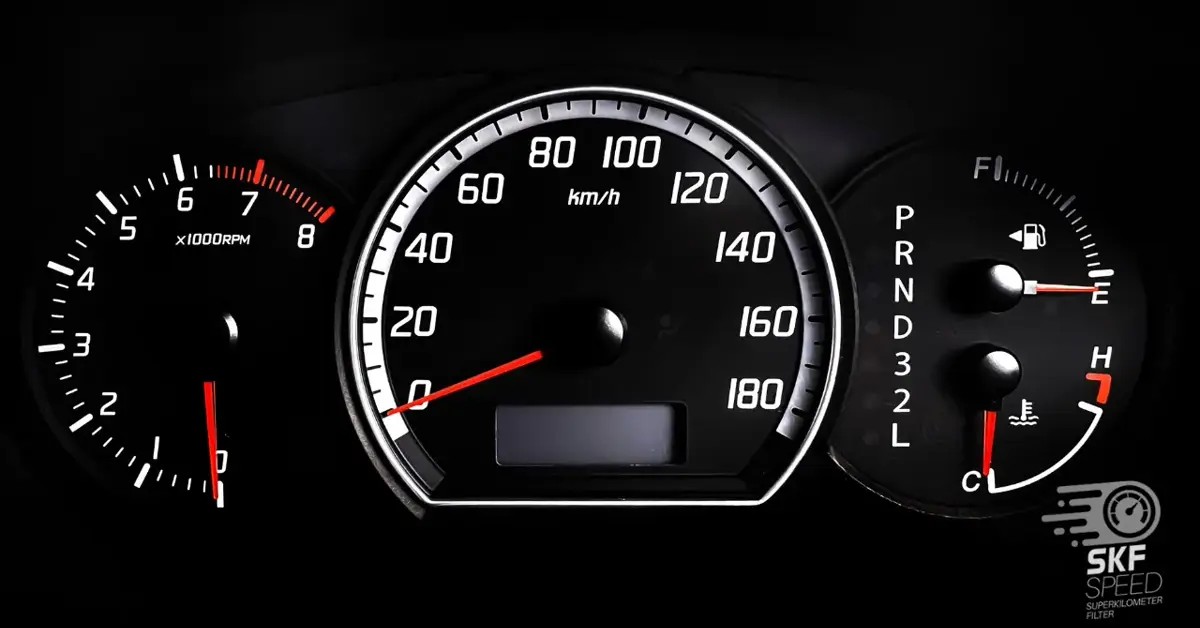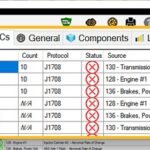Modifying the mileage displayed on a vehicle’s instrument cluster is a practice with a long history. While once a purely mechanical process, the advent of digital odometers has led to the development of sophisticated electronic tools known as Instrument Cluster Mileage Correction Tools. This article delves into the motivations behind mileage correction, the different types of tools available, their legality, and the importance of understanding the implications of using such devices.
Why Use an Instrument Cluster Mileage Correction Tool?
There are several reasons why individuals might consider using an instrument cluster mileage correction tool. These include:
- Technical Malfunctions: Occasionally, instrument clusters can malfunction, leading to inaccurate mileage readings. A correction tool might be necessary to restore accurate mileage in such cases.
- Testing and Development: Automotive engineers and technicians often use these tools during vehicle testing and development to simulate different driving scenarios and assess vehicle performance.
- Vehicle Import/Export: Mileage discrepancies between countries may necessitate adjustments to comply with local regulations when importing or exporting vehicles.
The Significance of Mileage on the Instrument Cluster
The mileage displayed on a vehicle’s odometer is a critical factor in determining its value and overall condition. Higher mileage generally indicates greater wear and tear, potentially impacting resale price and maintenance requirements. However, mileage alone doesn’t tell the whole story. Factors like driving conditions, maintenance history, and vehicle type also play significant roles.
Detecting Unethical Mileage Correction
Unethical mileage manipulation, often referred to as “odometer rollback,” is a serious issue. It can deceive potential buyers and lead to financial losses. Here are some potential signs of tampered mileage:
- Excessive Wear and Tear: Inspect the vehicle for signs of wear and tear that are inconsistent with the displayed mileage, such as worn tires, faded paint, or a worn interior.
- Damage to the Instrument Cluster: Tampering with the instrument cluster might leave physical evidence, like scratches or misaligned components.
- Inconsistencies in Documentation: Compare the mileage on the odometer with service records, vehicle history reports, and other documentation for discrepancies.
Types of Instrument Cluster Mileage Correction Tools
Various types of instrument cluster mileage correction tools exist, each with its own methodology:
- Odometer Rollback Tools: These tools reduce the displayed mileage to a lower number. However, this practice is illegal in most jurisdictions.
- Mileage Resetting Tools: These tools completely erase the mileage data, setting the odometer to zero. Similar to rollback tools, this is also illegal.
- Mileage Correction Tools: These tools allow for precise adjustments to the mileage, potentially to correct inaccuracies or comply with specific requirements.
Legality and Ethical Considerations
Tampering with a vehicle’s odometer for fraudulent purposes is illegal in most countries and carries severe penalties. It’s crucial to understand the legal ramifications before using any instrument cluster mileage correction tool. Ethical considerations should also guide the use of these tools. Transparency and honesty are paramount when dealing with vehicle mileage.
The Mileage Blocker: An Alternative Approach
Instead of correcting existing mileage, some devices, like the mileage blocker, prevent future mileage accumulation. This can be useful for testing purposes or specific off-road applications. However, using a mileage blocker on public roads is illegal in many jurisdictions.
Conclusion
Instrument cluster mileage correction tools can serve legitimate purposes, such as correcting errors or facilitating vehicle testing. However, their misuse for fraudulent activities is illegal and unethical. Understanding the different types of tools, their functionality, and the legal implications associated with their use is crucial for both vehicle owners and potential buyers. Always prioritize transparency and honesty when dealing with vehicle mileage.


